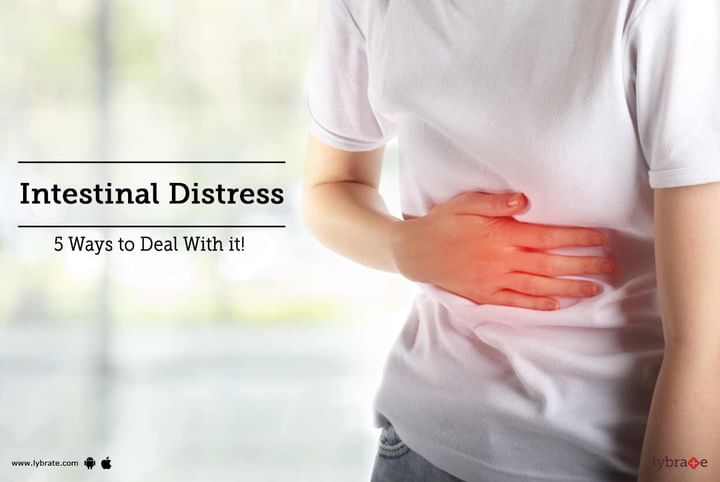Get the App
For Doctors
Login/Sign-up
Last Updated: Oct 23, 2019
BookMark
Report
Intestinal Distress: 5 Ways to Deal With it!
Dr. Bharat Kumar NaraGastroenterologist • 22 Years Exp.MBBS, M.S (Gen Surg), M.Ch ( Surgical Gastro)
Undigested food that lurks around in the digestive tract produces a host of disorders due to intestinal distress. These disorders range from acidity to gastro-oesophageal reflux and even colon diseases like cancer, irritable bowel syndrome, constipation, gallstones, ulcers and Crohn's disease. Cramps, nausea, vomiting, loose motions, gas, and acidity are some of the most common symptoms that visit the patient as a result of such ailments. There are many ways of dealing with such intestinal distress, as follows :-
- Diet: Introduce plenty of fibre into your diet to aid the digestion process. This can cut the risk of many such ailments and also aid in the treatment of the same. Intestinal distress is largely caused by food that is still lurking around in the digestive tract, so it is important to clean out the digestive system with plenty of fibre and water.
- Nutrition for better Digestive System Health: Food that is rich in minerals, vitamins, antioxidants and iron will help in creating a stronger system that cleanses the digestive tract and helps in reducing the production of excess acid in the stomach. A balanced diet with plenty of nutrition aids digestion and makes the immunity stronger.
- Study your Triggers: Watch out for foods that can trigger reflux action and other acidity related issues on the intake. These can include fatty food, fried and oily food as well as extremely spicy food. Stress is also a major trigger of intestinal distress, so it would be a good idea to avoid stressful situations or take medical help to deal with them in a better manner.
- Medication: Antacids and other medication to prevent the onset and growth of such distress can be sought out after due consultation with a medical practitioner. Medication will help in dealing with and altering the acid level production in the stomach.
- Surgery: In very extreme cases like ulcers and large size gallstones, surgery may be helpful so that you avoid rupturing the stomach's lining which can lead to a serious infection or even internal bleeding.
Knowing your triggers and getting into a better routine as far as your diet goes is as important as consulting a doctor about the severity of your case when it comes to intestinal distress.



+1.svg)
